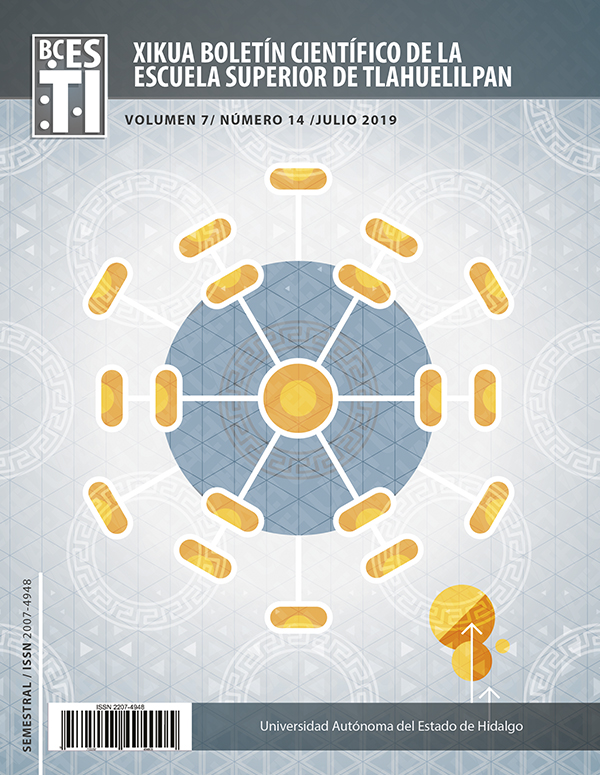Self-care in the daily life of the elderly person living with type 2 diabtes mellitus before and after nursing education support
Abstract
Introduction: the elderly have a high prevalence of chronic-degenerative diseases in Mexico, the prevalence of diabetes mellitus has been growing rapidly, especially in the elderly. Objective: To evaluate the self-care agency in the daily life of the elderly person living with diabetes mellitus 2, before and after nursing education support. Methods and materials: quantitative study, of correlational, quasi-experimental scope, included elderly people living with diabetes mellitus 2, who attended the Centro Gerotológico de Tula. The Scale of Appreciation of Self-Care Agency (ASA) capacity was applied, structuring before and after the educational support directed to the elderly living with diabetes mellitus 2 to improve the self-care agency. Descriptive and inferential statistics were used: Wilcoxon (p≤0.05). Results: 91.7% female gender; 8.3% were single, 50% married and 41.7% widowed. The mean age was 71.08 ± 5.3 years. In the evaluation of the self-care agency, 83.3% were found in the first measurement with a very good rating and 16.7 with a good rating, and a very good 100% in the second measurement. Wilcoxon z = -2.572 p = .01. Conclusions: The self-care agency in older adults living with type 2 diabetes mellitus increases after educational support.
Downloads
References
Federación Mexicana de Diabetes. (2014). Diabetes en México. Recuperado el 27 de abril de 2019, de Federación Mexicana de Diabetes: http://fmdiabetes.org/diabetes-en-mexico/
Fernández-Vázquez, A., Abdala-Cervantes, T., Alvara-Solís, E., Tenorio-Franco, G., López-Valencia, E., & Cruz-Centeno, S., Dávila-Mendoza, R., & González Pedraza-Avilés, A. (2012). Estrategias de autocuidado en pacientes con diabetes mellitus tipo 2. Revista de Especialidades Médico-Quirúrgicas, 17 (2), 94-99. Recuperado en 27 de abril de 2019, de http://www.redalyc.org/articulo.oa?id=47323278006
González Pedraza-Avilés, A., & Martínez Vázquez, R. (2007). Efectividad de una estrategia educativa sobre los parámetros bioquímicos y el nivel de conocimientos en pacientes diabéticos tipo 2. Revista de Endocrinología y Nutrición, 15(3), 165–174. Recuperado el 27 de abril de 2019: http://www.medigraphic.com/pdfs/endoc/er-2007/er073g.pdf
Herrera-Lían, A., Andrade, Y., Hernandez, O., Manrrique, J., Faria, K., & Machado, M. (2012). Personas con diabetes mellitus tipo 2 y su capacidad de agencia de autocuidado, Cartagena. Avances en Enfermería, 30(2), 39–46. Recuperado el 27 de abril de 2019: https://revistas.unal.edu.co/index.php/avenferm/article/view/36079
Instituto para la Atencion de los Adultos Mayores en la ciudad de México. (s.f.). ¿Quién es la persona mayor? Recuperado el 27 de abril de 2019: http://www.adultomayor.cdmx.gob.mx/index.php/quien-es-el-adulto-mayor
Loredo-Figueroa, M., Gallegos-Torres, R., Xeque-Morales, A., Palome-Veja, G., & Juarez-Lira, A. (2016). Nivel de dependencia, autocuidado y calidad de vida del adulto mayor. Enfermería Universitaria, 13(3), 159–165. Recuperado el 27 de abril de 2019: http://www.scielo.org.mx/scielo.php?pid=S1665-70632016000300159&script=sci_arttext&tlng=en
Ochoa-Ortega, M.R., Díaz-Domínguez, M.Á., Casanova-Moreno, M.C., Pérez-Sierra, M., & Llogas-Porras, M. (2012). A strategy of an educational intervention in Type-2 diabetic old people. Revista de Ciencias Médicas de Pinar del Río, 16(3), 109-119. Recuperado en 27 de abril de 2019, de http://scielo.sld.cu/scielo.php?script=sci_arttext&pid=S1561-31942012000300011&lng=es&tlng=en.
OMS. (2015). Envejecimiento y salud. Recuperado de Organización Mundial de la Salud, el 27 de abril de 2019: https://www.who.int/es/news-room/fact-sheets/detail/envejecimiento-y-salud
OMS. (2016). Informe mundial sobre la diabetes. Who, 1–84. Recuperado de Organización Mundial de la Salud, el 27 de abril de 2019: https://doi.org/10.18004/rvspmi/2312-3893/2016.03(02)71-076
OMS. (2018). Diabetes. Recuperado de Organización Mundial de la Salud, el 27 de abril de 2019: https://www.who.int/es/news-room/fact-sheets/detail/diabetes
Salcedo-Álvarez, R.A., Jiménez-Mendoza, A., González-Caamaño, B.C., Rivas-Herrera, J.C., & del Prado-Vázquez, A. (2017). Plan domiciliario de autocuidado para adultos mayores con DM2 aplicando la taxonomía NANDANOC-NIC. Rev Enferm Inst Mex Seguro Soc, 25(4), 299-309. Recuperado en 27 de abril de 2019, de https://www.medigraphic.com/pdfs/enfermeriaimss/eim-2017/eim174i.pdf









